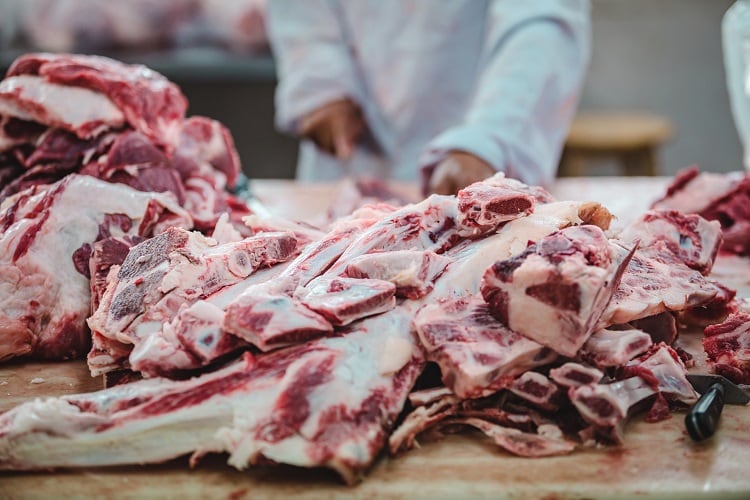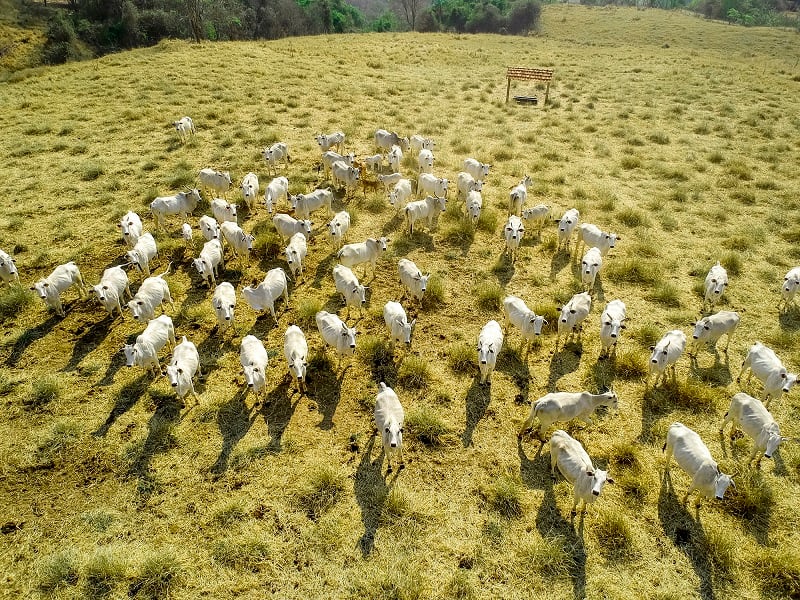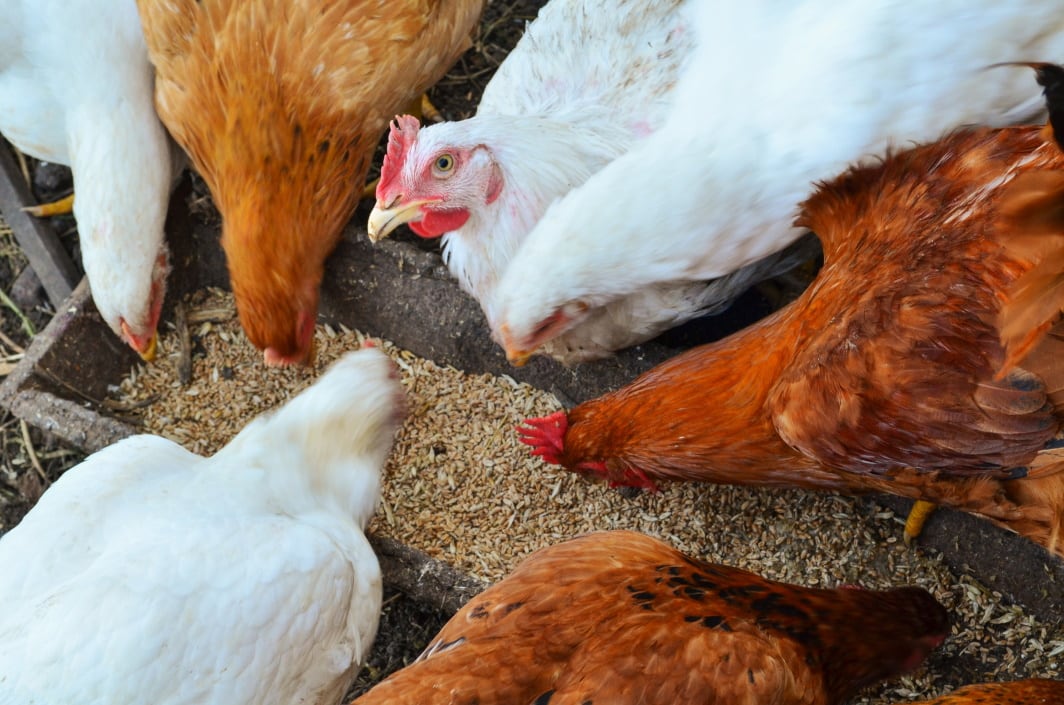According to the report, published by KnowTheChain, the ‘world’s four biggest meat companies’ are ‘failing to take basic actions’ to protect workers in their supply chains.
KnowTheChain – a partnership between Humanity United, Business & Human Rights Resource Centre, Sustainalytics, and Verité – benchmarks current corporate practices to create resources for investors and companies.
In its most recent benchmark report, which assessed the world’s 43 largest food and beverage companies, KnowTheChain said it exposed ‘failures’ within these businesses that ‘increase the risk of squalid conditions and outbreaks of COVID-19’ seen in the meat industry this year.
‘Poor performances’ from JBS, Tyson, WH Group and Hormel
Specifically, KnowTheChain ranked the 43 food and drink majors against the International Labor Organisation’s core standards – examining their policies and procedures to address supply chain forced labour.
Companies were scored out of 100 against 21 indicators across seven themes. These covered areas such as the extent to which businesses’ buying practices incentivised good labour practices among suppliers, and their attempts to ensure supply chain workers are not exploited in the recruitment process.
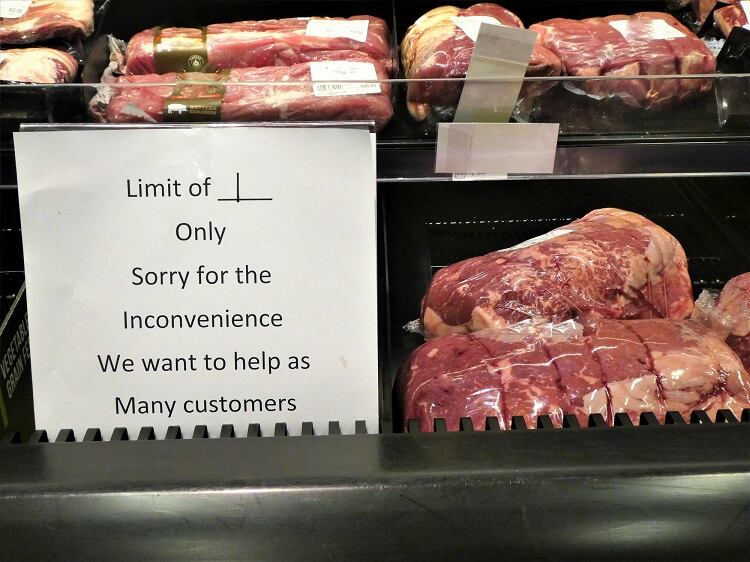
According to KnowTheChain, the ‘big four meat companies’ performed especially poorly, “with JBS and Tyson’s approach having worsened in recent years”.
Whereas the average score overall was 28/100, JBS and Hormel both scored 12/100. Tyson scored 9/100 and WH Group scored just 1/100.
The report states that none of the ‘big four’ meat processors disclosed any procedures for assessing new suppliers for forced labour risks before entering into contracts with them; none reported a process for responding to allegations of forced labour directed at their suppliers; and none reported supporting suppliers through its purchasing practices, for example by making prompt payments, improving forecasting, or considering the costs of labour when agreeing practices.
Further, KnowTheChain said that all four companies failed to disclose information on who in the company was responsible for implementing supply chain labour policies, and none reported engaging with supply chain workers’ unions, or making any effort to support freedom of association in their supply chains.
Tesco scored highest in the ranking (65/100), followed by Unilever (60/100) – which KnowTheChain noted had sped up payments to small suppliers through the pandemic and regularly engages with supply chain workers’ unions.
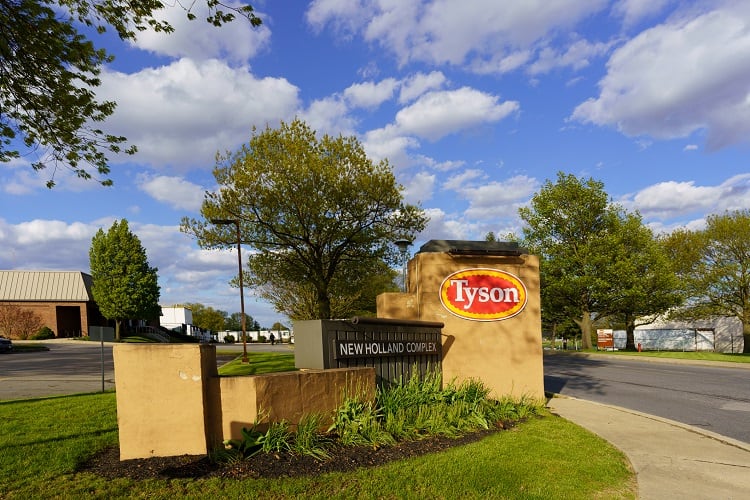
Concerning its ranking of the ‘big four’, KnowTheChain Project Director Felicitas Weber said: “This isn’t just a moral case. From a business perspective, investors are increasingly aware that protecting people will protect profits in the long term.”
According to Weber, KnowTheChain has previously ‘pointed out these failures’. “Now, with the stake higher due to the pandemic, industry heavyweights seem to be doing worse, not better. This risks leaving workers unpaid when sick, left without suitably protective gear, and with no means to fight for their rights.”
Three out of the ‘big four’ respond
FoodNavigator reached out to Hormel Foods, JBS, Tyson, and WH Group, to ask for their takes on the report. Responses were received from Hormel, JBS, and Tyson.
JBS stressed it aims to only partner with suppliers who share its values and mission ‘to achieve a more sustainable food supply’. “In 2016, we established a 2020 supply chain goal that requires all of our suppliers to be compliant with our Supplier Code of Conduct,” JBS USA’s head of corporate affairs, Cameron Bruett, told this publication.
Hormel, which owns a wide range of meat brands including Spam Hormel Deli Meats, also owns some brands outside of the meat category, such as Skippy and Happy Little Plants.
In response to KnowTheChain’s report, the company suggested that making more of its internal policies public in the future could yield different results. “Ensuring human rights within our entire supply chain is extremely important to us, and we are committed to continually advancing our efforts.
“As benchmark reports are often only based on publicly available information, we are committed to sharing more information about our policies and efforts in this area in the future and are confident that it will enhance our rating.”
Contrary to the implications of KnowTheChain’s report, meat processor Tyson told FoodNavigator the health and safety of its workers are its ‘top priority’. “We’ve implemented a host of protective measures at our facilities that meet or exceed CDC and OSHA guidance for preventing COVID-19,” we were told.
Indeed, the company has taken wide-reaching measures designed to protect its facilities from potential outbreaks. Tyson has ‘transformed’ its sites with ‘protective measures’, conducts ‘wellness health screening’ for all team members each time they turn up to work, and has purchased more than 15- infrared walkthrough temperature scanners to help detect signs of illness.
“Tyson Foods has given plant tours to government leaders, and officials from the CDC and the League of Latin American Citizens (LULAC)…so they could see the measures the company has put in place. LULAC has acknowledged that Tyson Foods has ‘made significant strides’.”


